#franza
Explore tagged Tumblr posts
Photo

Anna Selezneva, Anna Jagodzińska & Viktoriya Sasonkina for Vogue Italia January 2009 Editor-in-Chief Franca Sozzani Photographer Steven Meisel Newest Cool on Instagram
#newest cool#newestcool#Anna Selezneva#Anna Jagodzińska#Viktoriya Sasonkina#vogue italia#italian vogue#vogue italy#vogue editorial#fashion editorial#beauty editorial#vogue magazine#vogue cover#franza sozzani#Steven meisel#Steven meisel photography#modest high fashion#modest look#modest style#modest outfit#babushka#headscarf#headcover#headpiece#neckerchief#hijab#balaclava#2000s magazine#2000s fashion#2000s aesthetic
52 notes
·
View notes
Text



phoebe bridgers, moon song / hozier, who we are / franz kafka, letters to milena
#hozier#unreal unearth#phoebe bridgers#moon song#Punisher#franza kafka#letters to milena#hold like water#love as a knife#web weaving#uploads
14 notes
·
View notes
Text
i'm feeling really gross about a lot of my relationships. how come so many men explicitly state your platonic friendship and go on to violate so many boundaries. and how come i keep missing it until its too late
#tw sa implied#personal#misogyny#autism#feeling like that franza kafka quote about finding out everyone else is lying about themselves#misery posting
0 notes
Text
Katowice Kadry z ulicy Franza Wincklera, Urokliwy Śląsk / Śląsk Jest Prze Śliczny
#katowice#franza wincklera#kady katowic#katowice centrum#foto kadry#kato#foto katowice#foto spacer#śląsk jest prze śliczny#fotografia#urokliwy śląsk
0 notes
Text
i love the law and luffy dynamic where law is stressin' and luffy just goes "we got this, let's go!" I love their friendship, your honor.
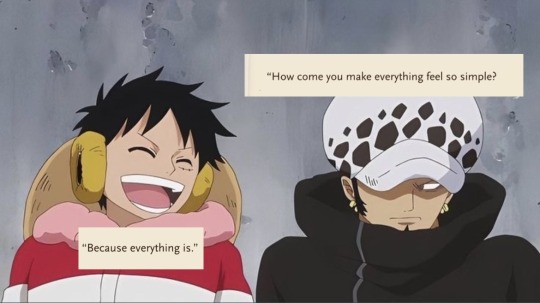
"how come you make everything feel so simple?" // "because everything is."
- So This Is The End / Alexandra Franza, 2018
(ilovetheirdynamicsiflawdiesforlifeiwillliterallycrytooda)
#LawLu#one piece#luffy being luffy#monkey d luffy#one piece trafalgar law#one piece strawhats#hearts pirates#one piece law#one piece scenario#trafalgar law#trafalgardwaterlaw
159 notes
·
View notes
Text
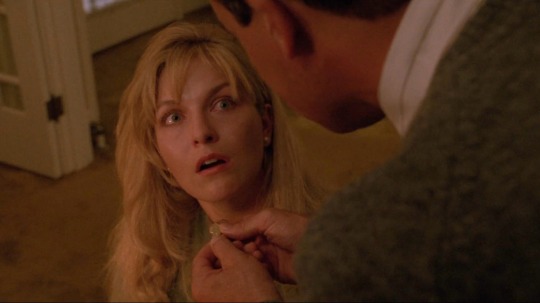

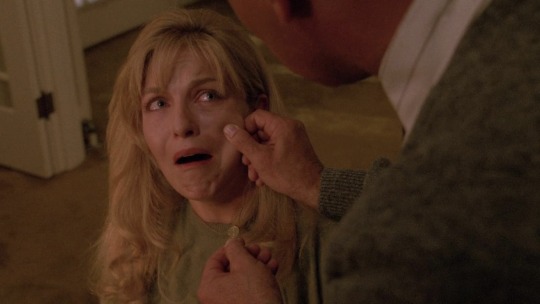
Ingeborg Bachmann, from The Book of Franza (tr. Jan van Heurck)
228 notes
·
View notes
Text








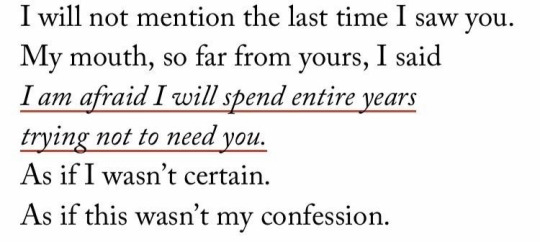



mash s1-4 // richard siken, war of the foxes // franza kafa, diaries 1910-1923 // victoria chang, foghorn // sylvia plath, letters vol. 1 // clementine von radics, the next time we talk on facebook // clementine von radics, in a dream you saw a way to survive
#mash#mash 4077#m*a*s*h#hawkeye pierce#trapper john mcintyre#piercintyre#traphawk#the way I have not been able to stop thinking of them and hawkeyes abandonment issues in weeks#trapper i miss you!!!!#web weaving#talia thank you for the photo help!!!1
625 notes
·
View notes
Text
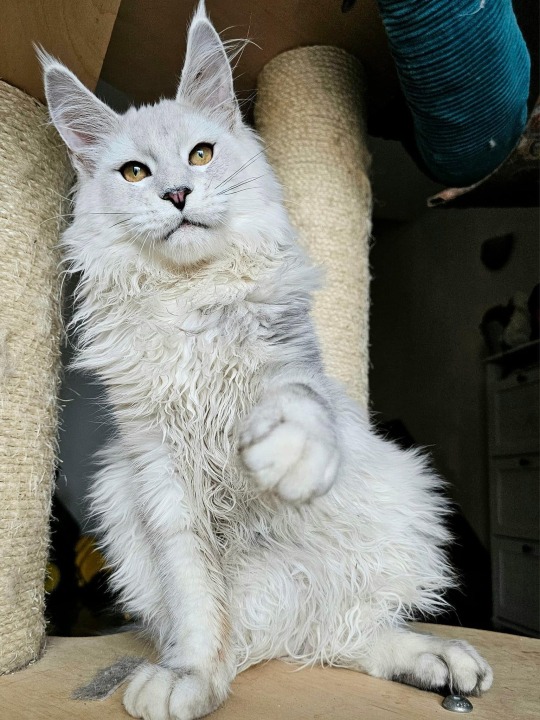
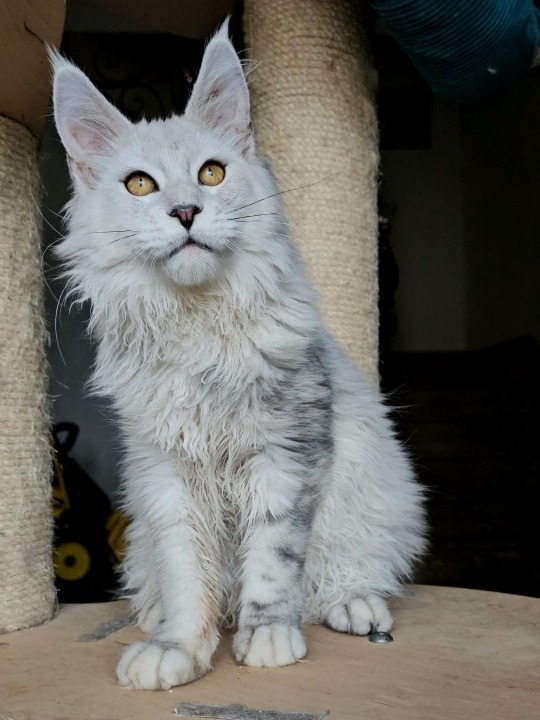
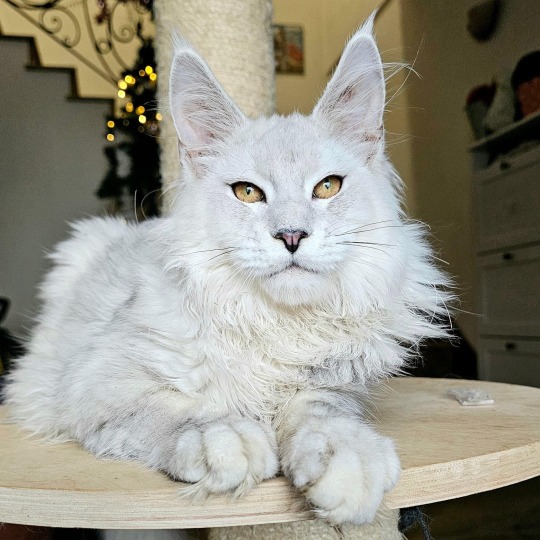


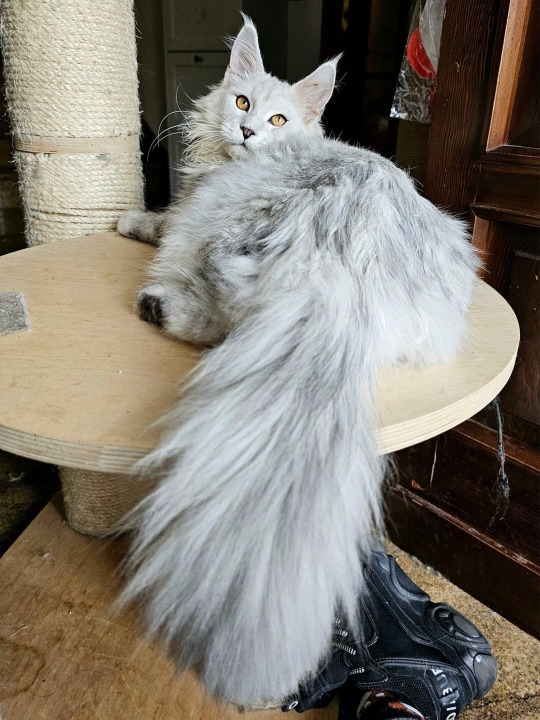
Olim Pisolo
🐱 Maine Coon
📸 Luana Franza [Olim Cattery]
🎨 Black Silver Shaded
74 notes
·
View notes
Text

Adam Franza for life.
24 notes
·
View notes
Text
Dieci anni di monarchia assoluta. (...) Poi a gennaio 2015, King George aveva lasciato il trono perché proprio non ce la faceva più. (...) Altrimenti, potete starne certi, sarebbe rimasto ancora là (...) a comandare le operazioni, a fare e disfare governi, a organizzare ribaltoni (...). E anche dopo, fuori dalla reggia (...) per un bel po' si è fatto sentire: (a)ltro che pensionato. (...) quella di Giorgio Napolitano non è stata una presidenza leggera, neutra, notarile, ma sempre al limite e talvolta debordante. Come banale non è stata la sua intera vita pubblica. (...) Giorgio Napolitano era nato a Napoli (...). Figlio di un avvocato (...), studi classici, (...). Elegante, sobrio, parlava un inglese perfetto: nel Pci per le sue posizioni lo chiamavano l'amerikano. Oppure re Umberto (...). (A)ll'università si era iscritto al Gruppo Universitari Fascisti (...), nel 194(5) entrò nel Pci. Deputato dal 1953, (...), diventò presto uno degli esponenti di maggior peso dell'ala riformista, i cosiddetti miglioristi (...). (A)lla morte di Enrico Berlinguer (...) gli fu preferito (come segretario del Partito) il più (...) ortodosso Alessandro Natta. (...) Nel 1992 venne eletto presidente della Camera. (...) Nel 1996 Romano Prodi lo scelse come ministro degli Interni (...). Dopo la caduta del governo del Professore, (...) Ciampi lo nominò senatore a vita. Il dieci maggio 2006, (...) superando Massimo D'Alema, venne eletto undicesimo presidente della Repubblica italiana. (...) Due anni dopo Silvio Berlusconi rivinse le elezioni e per Napolitano si aprì un difficile periodo di coabitazione. Seguendo le orme di Ciampi, re Giorgio cercava di limitare il Cav con la moral suasion e successi alterni. (...) (Ne)l 2011 Berlusconi, indebolito da alcune defenzioni nella maggioranza, malvisto da Francia e Germania e (messo) sotto pressione con lo spread (...), fu fortemente convinto a passare la mano a Mario Monti, che nel frattempo King George aveva prontamente nominato senatore a vita. Regista dell'operazione, voluta da Bruxelles (Parigi e Berlino) e ritenuta un golpe (...), Napolitano. Monti e i suoi tecnici governarono un annetto (...). Nel 2013 nuove elezioni con la vittoria dimezzata del Pd (e il trionfo del m5s) (...). Il sistema si bloccò. (...) Senza governo, senza un accordo, senza un nome per la presidenza: (l')ingorgo istituzionale (...). Il 20 aprile 2013 nacque il Giorgio II. Tre giorni più tardi, dopo un discorso di fuoco di Napolitano alle Camere, Enrico Letta si insediò a Palazzo Chigi a capo di un esecutivo di unità nazionale (...). Letta tirò avanti per un po', finché il Quirinale non lo sostituì con l'astro nascente Matteo Renzi. Per Napolitano un paio d'anni (di benevolo controllo remoto), fino alle dimissioni nel 2015. Una lunga monarchia condizionata dalla crisi economica e dal vuoto di potere della politica che il Re della Repubblica ha riempito, segnata pure da ruvidi scontri tra Colle e magistratura, fatta di tanti rimproveri ai giudici «protagonisti», culminata con l'intercettazione «casuale» di un colloquio tra il presidente e Nicola Mancino e il conflitto di attribuzione con la procura di Palermo.(...)
Ritratto accurato di un AVVERSARIO ben più lucido e pericoloso di tutto il resto della masnada idealista autoinculante, cui rivolgere RIP e onesto omaggio - ha combattuto efficacemente; di M.Scafi su https://www.ilgiornale.it/news/politica/record-e-giravolte-politico-che-ha-segnato-nostra-repubblica-2214770.html
L'iscritto al Guf che diventa comunista, da Kruschev all'Amerika dei Dems., l'Internazionalista che diventa Gauleiter di Franza e Cermania, la difesa del proletariato che si fa golpe di Palazzo : medieval machiavellico (è un complimento), ma quale vita ricca di contraddizioni, fu sempre perfettamente lucido e fedele alla linea nella sua vita.
79 notes
·
View notes
Text
olive
Oggi abbiamo fatto 10 chili di olive ammaccate, pestate col pestello e snocciolate una a una che manco la Saclà. Domenica hanno raccolto le olive, abbiamo scelto le migliori e il resto lo hanno portato al frantoio, mi sono sentito molto @pgfone. Io le olive vere, quelle attaccate agli alberi, non le avevo mai viste, come tutti i lombardi pensavo che nascessero direttamente nei barattoli, come il tonno, e l'unico ulivo di cui avevo sentito parlare era quello che faceva da testiera al letto di Ulisse e Penelope, una cosa mitica come l'Unicorno o i sette savi di Sion. Su al nord l'olio non si usava, noi a Moglia usavamo lo strutto e per condire l'insalata l'olio Sasso, i pomidori erano già troppo esotici per noi. Al pumdòr. Invece le patate, curiosamente, le chiamavamo anche pom de tera, alla francese, perché come tutti sanno il dialetto della Bassa è contaminato essenzialmente da due lingue: la Franza e la Spagna. Ma sto divagando. Evviva le olive, l'oro verde, una sola oliva, opportunamente schiacciata, può ungerti tutta la cucina, come in quell'episodio di Mr. Bean dove per ridipingere in un sol colpo il locale mette un petardo dentro un secchio di pittura e lo fa esplodere, solo che le olive ti dipingono tutto di verde oliva. (olive si chiamano anche i testicoli, ma noi di Moglia, sempre per via dell'influenza francese, li chiamavamo œuf, uova).
youtube
10 notes
·
View notes
Text

The Book of Franza, Ingeborg Bachmann
28 notes
·
View notes
Text
Mecz PL-AT
Jak wiecie, juz duzo czasu mieszkam w AT, wiec takie mecze zasadniczo lamia moje serce. Ale jeszcze bardziej moje serce zlamie sie jutro.
Jutro lecimy do Hanoweru, by pojechac do Poczdamu (nocleg i lot do Berlina byly poza zasiegiem) i dalej do Berlina, bo bedziemy na meczu PL-AT. Problem jest w tym, ze bilety mamy przez znajomego Franza z pracy (bo te, ktore Franz mogl kupic z losowania, byly niestety na inna grupe), a koles jest w austriackich chuliganach, w zwiazku z czym siedzimy w takim wlasnie sektorze.
Nie bardzo wiec wyobrazam sobie wyskoczenie w koszulce Polska w takich okolicznosciach. Chcialabym ten mecz jednak przezyc.
Z drugiej strony glupio byc na takim meczu i sie chowac.
Nie wiem, co robic.
12 notes
·
View notes
Text
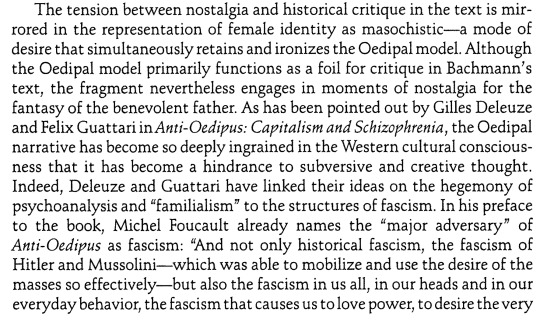

"Postmodernism and the Place of Nostalgia in Ingeborg Bachmann's Franza Fragment" by Heidi Schlipphacke
#heidi schlipphacke#gilles deleuze#felix guattari#michel foucalt#on power#on fascism#germany#my uploads
8 notes
·
View notes
Text
The Metamorphosis by Franza Kafka
Chapter II (part 2/2)
One day, about a month after Gregor’s transformation when his sister no longer had any particular reason to be shocked at his appearance, she came into the room a little earlier than usual and found him still staring out the window, motionless, and just where he would be most horrible. In itself, his sister’s not coming into the room would have been no surprise for Gregor as it would have been difficult for her to immediately open the window while he was still there, but not only did she not come in, she went straight back and closed the door behind her, a stranger would have thought he had threatened her and tried to bite her. Gregor went straight to hide himself under the couch, of course, but he had to wait until midday before his sister came back and she seemed much more uneasy than usual. It made him realise that she still found his appearance unbearable and would continue to do so, she probably even had to overcome the urge to flee when she saw the little bit of him that protruded from under the couch. One day, in order to spare her even this sight, he spent four hours carrying the bedsheet over to the couch on his back and arranged it so that he was completely covered and his sister would not be able to see him even if she bent down. If she did not think this sheet was necessary then all she had to do was take it off again, as it was clear enough that it was no pleasure for Gregor to cut himself off so completely. She left the sheet where it was. Gregor even thought he glimpsed a look of gratitude one time when he carefully looked out from under the sheet to see how his sister liked the new arrangement.
For the first fourteen days, Gregor’s parents could not bring themselves to come into the room to see him. He would often hear them say how they appreciated all the new work his sister was doing even though, before, they had seen her as a girl who was somewhat useless and frequently been annoyed with her. But now the two of them, father and mother, would often both wait outside the door of Gregor’s room while his sister tidied up in there, and as soon as she went out again she would have to tell them exactly how everything looked, what Gregor had eaten, how he had behaved this time and whether, perhaps, any slight improvement could be seen. His mother also wanted to go in and visit Gregor relatively soon but his father and sister at first persuaded her against it. Gregor listened very closely to all this, and approved fully. Later, though, she had to be held back by force, which made her call out: “Let me go and see Gregor, he is my unfortunate son! Can’t you understand I have to see him?”, and Gregor would think to himself that maybe it would be better if his mother came in, not every day of course, but one day a week, perhaps; she could understand everything much better than his sister who, for all her courage, was still just a child after all, and really might not have had an adult’s appreciation of the burdensome job she had taken on.
Gregor’s wish to see his mother was soon realised. Out of consideration for his parents, Gregor wanted to avoid being seen at the window during the day, the few square meters of the floor did not give him much room to crawl about, it was hard to just lie quietly through the night, his food soon stopped giving him any pleasure at all, and so, to entertain himself, he got into the habit of crawling up and down the walls and ceiling. He was especially fond of hanging from the ceiling; it was quite different from lying on the floor; he could breathe more freely; his body had a light swing to it; and up there, relaxed and almost happy, it might happen that he would surprise even himself by letting go of the ceiling and landing on the floor with a crash. But now, of course, he had far better control of his body than before and, even with a fall as great as that, caused himself no damage. Very soon his sister noticed Gregor’s new way of entertaining himself—he had, after all, left traces of the adhesive from his feet as he crawled about—and got it into her head to make it as easy as possible for him by removing the furniture that got in his way, especially the chest of drawers and the desk. Now, this was not something that she would be able to do by herself; she did not dare to ask for help from her father; the sixteen year old maid had carried on bravely since the cook had left but she certainly would not have helped in this, she had even asked to be allowed to keep the kitchen locked at all times and never to have to open the door unless it was especially important; so his sister had no choice but to choose some time when Gregor’s father was not there and fetch his mother to help her. As she approached the room, Gregor could hear his mother express her joy, but once at the door she went silent. First, of course, his sister came in and looked round to see that everything in the room was alright; and only then did she let her mother enter. Gregor had hurriedly pulled the sheet down lower over the couch and put more folds into it so that everything really looked as if it had just been thrown down by chance. Gregor also refrained, this time, from spying out from under the sheet; he gave up the chance to see his mother until later and was simply glad that she had come. “You can come in, he can’t be seen”, said his sister, obviously leading her in by the hand. The old chest of drawers was too heavy for a pair of feeble women to be heaving about, but Gregor listened as they pushed it from its place, his sister always taking on the heaviest part of the work for herself and ignoring her mother’s warnings that she would strain herself. This lasted a very long time. After labouring at it for fifteen minutes or more his mother said it would be better to leave the chest where it was, for one thing it was too heavy for them to get the job finished before Gregor’s father got home and leaving it in the middle of the room it would be in his way even more, and for another thing it wasn’t even sure that taking the furniture away would really be any help to him. She thought just the opposite; the sight of the bare walls saddened her right to her heart; and why wouldn’t Gregor feel the same way about it, he’d been used to this furniture in his room for a long time and it would make him feel abandoned to be in an empty room like that. Then, quietly, almost whispering as if wanting Gregor (whose whereabouts she did not know) to hear not even the tone of her voice, as she was convinced that he did not understand her words, she added “and by taking the furniture away, won’t it seem like we’re showing that we’ve given up all hope of improvement and we’re abandoning him to cope for himself? I think it’d be best to leave the room exactly the way it was before so that when Gregor comes back to us again he’ll find everything unchanged and he’ll be able to forget the time in between all the easier”.
Hearing these words from his mother made Gregor realise that the lack of any direct human communication, along with the monotonous life led by the family during these two months, must have made him confused—he could think of no other way of explaining to himself why he had seriously wanted his room emptied out. Had he really wanted to transform his room into a cave, a warm room fitted out with the nice furniture he had inherited? That would have let him crawl around unimpeded in any direction, but it would also have let him quickly forget his past when he had still been human. He had come very close to forgetting, and it had only been the voice of his mother, unheard for so long, that had shaken him out of it. Nothing should be removed; everything had to stay; he could not do without the good influence the furniture had on his condition; and if the furniture made it difficult for him to crawl about mindlessly that was not a loss but a great advantage.
His sister, unfortunately, did not agree; she had become used to the idea, not without reason, that she was Gregor’s spokesman to his parents about the things that concerned him. This meant that his mother’s advice now was sufficient reason for her to insist on removing not only the chest of drawers and the desk, as she had thought at first, but all the furniture apart from the all-important couch. It was more than childish perversity, of course, or the unexpected confidence she had recently acquired, that made her insist; she had indeed noticed that Gregor needed a lot of room to crawl about in, whereas the furniture, as far as anyone could see, was of no use to him at all. Girls of that age, though, do become enthusiastic about things and feel they must get their way whenever they can. Perhaps this was what tempted Grete to make Gregor’s situation seem even more shocking than it was so that she could do even more for him. Grete would probably be the only one who would dare enter a room dominated by Gregor crawling about the bare walls by himself.
So she refused to let her mother dissuade her. Gregor’s mother already looked uneasy in his room, she soon stopped speaking and helped Gregor’s sister to get the chest of drawers out with what strength she had. The chest of drawers was something that Gregor could do without if he had to, but the writing desk had to stay. Hardly had the two women pushed the chest of drawers, groaning, out of the room than Gregor poked his head out from under the couch to see what he could do about it. He meant to be as careful and considerate as he could, but, unfortunately, it was his mother who came back first while Grete in the next room had her arms round the chest, pushing and pulling at it from side to side by herself without, of course, moving it an inch. His mother was not used to the sight of Gregor, he might have made her ill, so Gregor hurried backwards to the far end of the couch. In his startlement, though, he was not able to prevent the sheet at its front from moving a little. It was enough to attract his mother’s attention. She stood very still, remained there a moment, and then went back out to Grete.
Gregor kept trying to assure himself that nothing unusual was happening, it was just a few pieces of furniture being moved after all, but he soon had to admit that the women going to and fro, their little calls to each other, the scraping of the furniture on the floor, all these things made him feel as if he were being assailed from all sides. With his head and legs pulled in against him and his body pressed to the floor, he was forced to admit to himself that he could not stand all of this much longer. They were emptying his room out; taking away everything that was dear to him; they had already taken out the chest containing his fretsaw and other tools; now they threatened to remove the writing desk with its place clearly worn into the floor, the desk where he had done his homework as a business trainee, at high school, even while he had been at infant school—he really could not wait any longer to see whether the two women’s intentions were good. He had nearly forgotten they were there anyway, as they were now too tired to say anything while they worked and he could only hear their feet as they stepped heavily on the floor.
So, while the women were leant against the desk in the other room catching their breath, he sallied out, changed direction four times not knowing what he should save first before his attention was suddenly caught by the picture on the wall—which was already denuded of everything else that had been on it—of the lady dressed in copious fur. He hurried up onto the picture and pressed himself against its glass, it held him firmly and felt good on his hot belly. This picture at least, now totally covered by Gregor, would certainly be taken away by no-one. He turned his head to face the door into the living room so that he could watch the women when they came back.
They had not allowed themselves a long rest and came back quite soon; Grete had put her arm around her mother and was nearly carrying her. “What shall we take now, then?”, said Grete and looked around. Her eyes met those of Gregor on the wall. Perhaps only because her mother was there, she remained calm, bent her face to her so that she would not look round and said, albeit hurriedly and with a tremor in her voice: “Come on, let’s go back in the living room for a while?” Gregor could see what Grete had in mind, she wanted to take her mother somewhere safe and then chase him down from the wall. Well, she could certainly try it! He sat unyielding on his picture. He would rather jump at Grete’s face.
But Grete’s words had made her mother quite worried, she stepped to one side, saw the enormous brown patch against the flowers of the wallpaper, and before she even realised it was Gregor that she saw screamed: “Oh God, oh God!” Arms outstretched, she fell onto the couch as if she had given up everything and stayed there immobile. “Gregor!” shouted his sister, glowering at him and shaking her fist. That was the first word she had spoken to him directly since his transformation. She ran into the other room to fetch some kind of smelling salts to bring her mother out of her faint; Gregor wanted to help too—he could save his picture later, although he stuck fast to the glass and had to pull himself off by force; then he, too, ran into the next room as if he could advise his sister like in the old days; but he had to just stand behind her doing nothing; she was looking into various bottles, he startled her when she turned round; a bottle fell to the ground and broke; a splinter cut Gregor’s face, some kind of caustic medicine splashed all over him; now, without delaying any longer, Grete took hold of all the bottles she could and ran with them in to her mother; she slammed the door shut with her foot. So now Gregor was shut out from his mother, who, because of him, might be near to death; he could not open the door if he did not want to chase his sister away, and she had to stay with his mother; there was nothing for him to do but wait; and, oppressed with anxiety and self-reproach, he began to crawl about, he crawled over everything, walls, furniture, ceiling, and finally in his confusion as the whole room began to spin around him he fell down into the middle of the dinner table.
He lay there for a while, numb and immobile, all around him it was quiet, maybe that was a good sign. Then there was someone at the door. The maid, of course, had locked herself in her kitchen so that Grete would have to go and answer it. His father had arrived home. “What’s happened?” were his first words; Grete’s appearance must have made everything clear to him. She answered him with subdued voice, and openly pressed her face into his chest: “Mother’s fainted, but she’s better now. Gregor got out.” “Just as I expected”, said his father, “just as I always said, but you women wouldn’t listen, would you.” It was clear to Gregor that Grete had not said enough and that his father took it to mean that something bad had happened, that he was responsible for some act of violence. That meant Gregor would now have to try to calm his father, as he did not have the time to explain things to him even if that had been possible. So he fled to the door of his room and pressed himself against it so that his father, when he came in from the hall, could see straight away that Gregor had the best intentions and would go back into his room without delay, that it would not be necessary to drive him back but that they had only to open the door and he would disappear.
His father, though, was not in the mood to notice subtleties like that; “Ah!”, he shouted as he came in, sounding as if he were both angry and glad at the same time. Gregor drew his head back from the door and lifted it towards his father. He really had not imagined his father the way he stood there now; of late, with his new habit of crawling about, he had neglected to pay attention to what was going on the rest of the flat the way he had done before. He really ought to have expected things to have changed, but still, still, was that really his father? The same tired man as used to be laying there entombed in his bed when Gregor came back from his business trips, who would receive him sitting in the armchair in his nightgown when he came back in the evenings; who was hardly even able to stand up but, as a sign of his pleasure, would just raise his arms and who, on the couple of times a year when they went for a walk together on a Sunday or public holiday wrapped up tightly in his overcoat between Gregor and his mother, would always labour his way forward a little more slowly than them, who were already walking slowly for his sake; who would place his stick down carefully and, if he wanted to say something would invariably stop and gather his companions around him. He was standing up straight enough now; dressed in a smart blue uniform with gold buttons, the sort worn by the employees at the banking institute; above the high, stiff collar of the coat his strong double-chin emerged; under the bushy eyebrows, his piercing, dark eyes looked out fresh and alert; his normally unkempt white hair was combed down painfully close to his scalp. He took his cap, with its gold monogram from, probably, some bank, and threw it in an arc right across the room onto the sofa, put his hands in his trouser pockets, pushing back the bottom of his long uniform coat, and, with look of determination, walked towards Gregor.
He probably did not even know himself what he had in mind, but nonetheless lifted his feet unusually high. Gregor was amazed at the enormous size of the soles of his boots, but wasted no time with that—he knew full well, right from the first day of his new life, that his father thought it necessary to always be extremely strict with him. And so he ran up to his father, stopped when his father stopped, scurried forwards again when he moved, even slightly. In this way they went round the room several times without anything decisive happening, without even giving the impression of a chase as everything went so slowly. Gregor remained all this time on the floor, largely because he feared his father might see it as especially provoking if he fled onto the wall or ceiling. Whatever he did, Gregor had to admit that he certainly would not be able to keep up this running about for long, as for each step his father took he had to carry out countless movements. He became noticeably short of breath, even in his earlier life his lungs had not been very reliable. Now, as he lurched about in his efforts to muster all the strength he could for running he could hardly keep his eyes open; his thoughts became too slow for him to think of any other way of saving himself than running; he almost forgot that the walls were there for him to use although, here, they were concealed behind carefully carved furniture full of notches and protrusions—then, right beside him, lightly tossed, something flew down and rolled in front of him. It was an apple; then another one immediately flew at him; Gregor froze in shock; there was no longer any point in running as his father had decided to bombard him. He had filled his pockets with fruit from the bowl on the sideboard and now, without even taking the time for careful aim, threw one apple after another. These little, red apples rolled about on the floor, knocking into each other as if they had electric motors. An apple thrown without much force glanced against Gregor’s back and slid off without doing any harm. Another one however, immediately following it, hit squarely and lodged in his back; Gregor wanted to drag himself away, as if he could remove the surprising, the incredible pain by changing his position; but he felt as if nailed to the spot and spread himself out, all his senses in confusion. The last thing he saw was the door of his room being pulled open, his sister was screaming, his mother ran out in front of her in her blouse (as his sister had taken off some of her clothes after she had fainted to make it easier for her to breathe), she ran to his father, her skirts unfastened and sliding one after another to the ground, stumbling over the skirts she pushed herself to his father, her arms around him, uniting herself with him totally—now Gregor lost his ability to see anything—her hands behind his father��s head begging him to spare Gregor’s life.
11 notes
·
View notes
Text

“Per battaglia solamente de meza hora vincemmo la rocha, la Cittadella et l’altra terza parte chiamata el paradiso, cum occisione de circa quatrrocento de quelli de entro che difendendosi perirono, et pigliammo Madonna Catherina Sforza.”
Cesare Borgia a Ercole d’Este duca di Ferrara, 12 gennaio 1500, dal campo a Forlì.
Il 19 dicembre 1499, Cesare Borgia, noto come il Valentino, supportato dalle truppe di Luigi XII, Re di Francia, pose sotto assedio la Rocca di Ravaldino a Forlì. Dopo una settimana di incessanti bombardamenti giorno e notte, il Valentino riuscì a creare una breccia nella Rocca il 12 gennaio 1500, catturando Caterina Sforza insieme a ciò che rimaneva della sua corte. Questo fu l'episodio conclusivo della vita pubblica di Caterina Sforza. Da quel momento in poi, non poté più far ritorno alle signorie di Imola e Forlì. Papa Giulio II affidò questi territori alla famiglia Ordelaffi e Caterina dopo un breve periodo di prigionia trascorse il resto della sua vita a Firenze.
La resistenza solitaria di Caterina fu ammirata in tutta Italia, ispirando la composizione di numerose canzoni ed epigrammi in suo onore. Tra questi, il poeta Marsilio Compagnon che compose una canzone intitolata "Il lamento di Caterina Sforza Riario".
Ascolta questa sconsolata
Catherina da Forlivo
Ch'io ho gran guerra nel confino
Senza aiuto abbandonata
Io non veggo alcun signore
Che a cavallo monti armato
E poi mostri il suo vigore
Per difendere il mio stato
Tutto il mondo è spaventato
Quando senton criar Franza
E d'Italia la possanza
Par che sia profundata
'Scolta questa sconsolata
Catherina da Forlivo...
seguici su FB e INSTAGRAM
www.famaleonis.com
#medieval#caterina sforza#enionline#forli#roccadiravaldino#15th century#cesare borgia#16thcentury#Eugenio larosa#rinascimento#italian renaissance#renaissance
2 notes
·
View notes